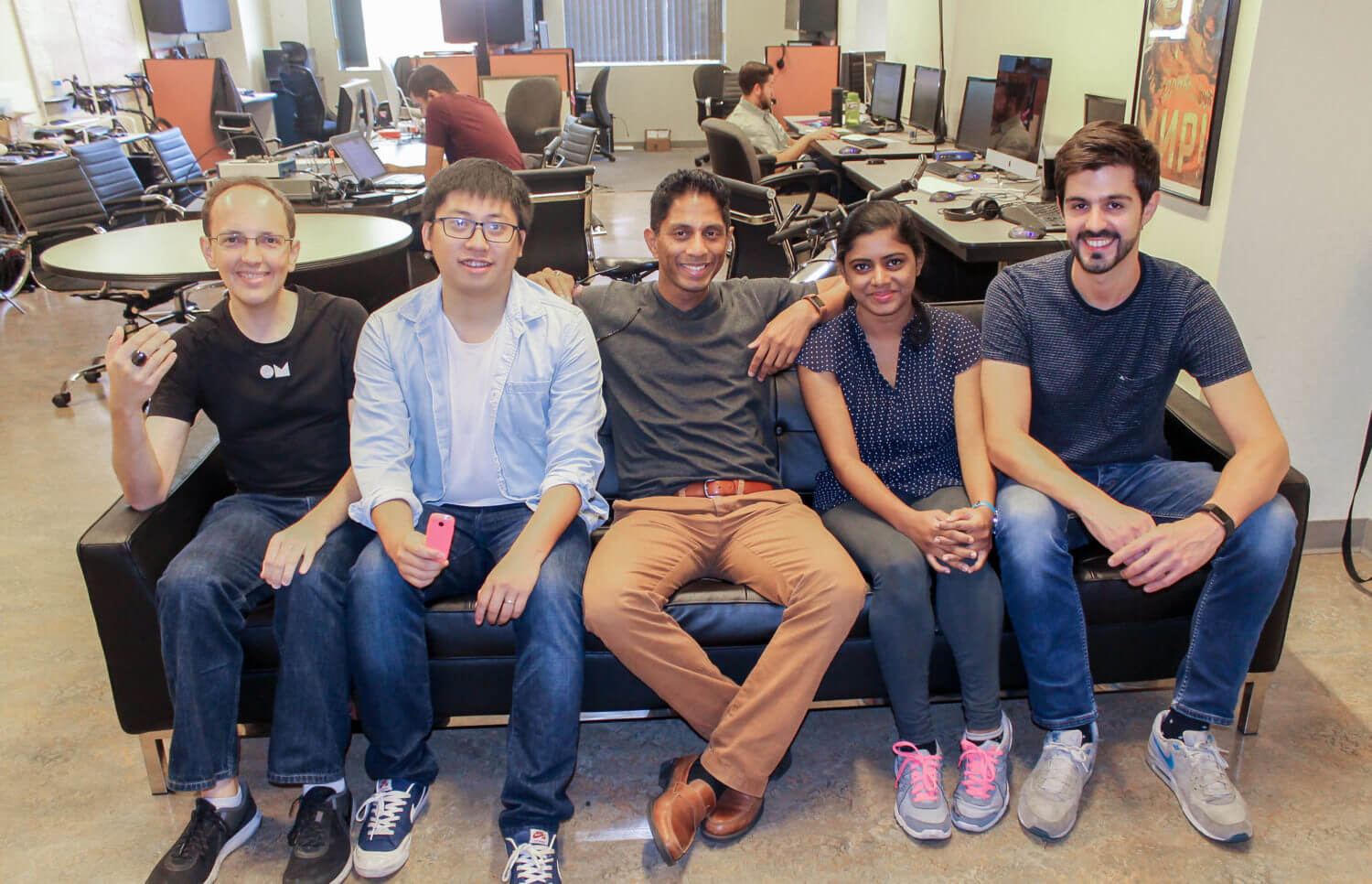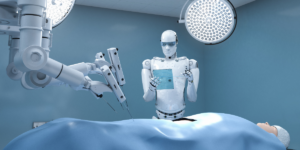
The multidisciplinary research team hopes to unlock the secrets to a healthier, happier and more productive work environment. Photo credit/iStock.
To combat stress in the workplace, you first need to understand why it happens. That’s the aim of a groundbreaking new study underway at the Information Sciences Institute (ISI) at USC’s Viterbi School of Engineering, in collaboration with Keck Medicine of USC and USC Dornsife College of Letters, Arts and Sciences.
The multidisciplinary team, led by Shrikanth Narayanan, an ISI research director, Niki & C. L. Max Nikias Chair in Engineering and professor of electrical engineering, hopes to unlock the secret to a healthier, happier and more productive work environment using research at the intersection of data, sensors and artificial intelligence.
“Using this data, we can see how your body actually responds to stressors in the environment.” Shrikanth Narayanan
“We have an intuitive understanding of what makes us feel stressed or motivated at work, but the aim of this study is to understand it in a more quantitative, objective way,” says Narayanan, who specializes in studying human behavior using technology.
USC ISI computer scientists will analyze sensor and self-assessment questionnaire data collected from 250 Keck Medicine of USC nurses, who will voluntarily participate in the study. The team will then work with behavioral psychologists, including USC Dornsife psychology professor Gayla Margolin, to analyze and interpret the results.
The project showcases what USC Viterbi Dean Yannis C. Yortsos calls “Engineering Plus”—the power of engineering disciplines to enable and advance other disciplines.
“This collaborative study brings the strengths of USC’s diverse research communities together to help study a problem in a real-world laboratory,” says Felipe Osorno, executive administrator at Keck Medicine of USC’s Value Improvement Office.
The Intelligence Advanced Research Projects Activity (IARPA) has awarded a $12-million contract for the project, which will be spread across four years of research and development.
Gleaning psychological insights from sensor data
During an initial 10-week health assessment, slated for January 2018, ISI researchers will collect a stream of data from participants using various methodologies, including wearable sensors, cognitive assessments and daily surveys.
Numerous physical and emotional parameters will be tracked continuously, including sleep quality, self-assessed work performance and social interaction.
Specifically, the researchers aim to better understand how stress and other factors impact how people feel and perform at work, particularly in challenging occupations such as nursing, where 12-hour shifts are the norm.
“Using this data, we can see how your body actually responds to stressors in the environment,” says Narayanan.
A world-renowned academic medical center, Keck Medicine of USC employs more than 4,000 people, including 1,300 nurses, who care for hundreds of patients every day.
“Nurses have an extremely demanding job,” says Osorno. “They work in a particularly complex environment, making hundreds of decisions and interacting with many groups of people to deliver care, including patients and their families, physicians and coworkers. It’s an opportunity for us to gain a solid understanding of how stress impacts job performance, which is especially critical in medicine.”
Although beyond the scope of this present study, the team hopes psychological insights gleaned from the data could eventually justify the implementation of positive workplace interventions that could lower stress and boost employee well-being and morale in numerous fields.
“We may not be able to solve every problem, but from what we learn, we can think about how to help people cope better, through on-the-spot interventions, such as taking a break after a stressful encounter, or by informing the design of good workplace environments,” says Narayanan.
Creating a healthier work environment

Principal investigator Shrikanth Narayanan (center) pictured in USC’s Signal Analysis and Interpretation Laboratory (SAIL) with Viterbi student team members (left to right): Brandon Booth, Tiantian Feng, Amrutha Nadarajan, Karel Mundnich. Photo credit/Ben Paul.
The ISI team is currently working with Keck Medicine of USC nurses and representatives to gather feedback that will influence the study’s design — for example, ensuring sensors are unobtrusive and do not disrupt the participants’ busy schedules.
Volunteers and partners at Keck Medicine of USC have welcomed the collaborative and participatory research approach, which includes regular meetings and focus groups.
“The nurses of Keck Medicine of USC are part of a dedicated group of clinicians working to prevent, treat and cure disease each day,” says Brooke Baldwin-Rodriguez, director of nursing at Keck Medicine of USC. “They are eager to participate in a study with the potential to positively impact the lives of their peers and patients.”
The team also emphasizes the vital importance of participant privacy — job performance, self-assessments and all data collected in the study will be encrypted and anonymized to ensure confidentiality.
About the study
The project is titled TILES: Tracking Individual Performance with Sensors. The principal investigator is Shrikanth Narayanan. Collaborators include ISI researchers Kristina Lerman and Emilio Ferrara, USC Dornsife psychology professor Gayla Margolin, USC Viterbi School of Engineering electrical engineering professor Murali Annavaram, Keck Medicine of USC’s Brooke Baldwin-Rodriguez and Felipe Osorno, researchers from the University of Washington and Institut National de la Recherche Scientifique (INRS) and technology company Evidation Health.
Published on October 3rd, 2017
Last updated on November 8th, 2017













